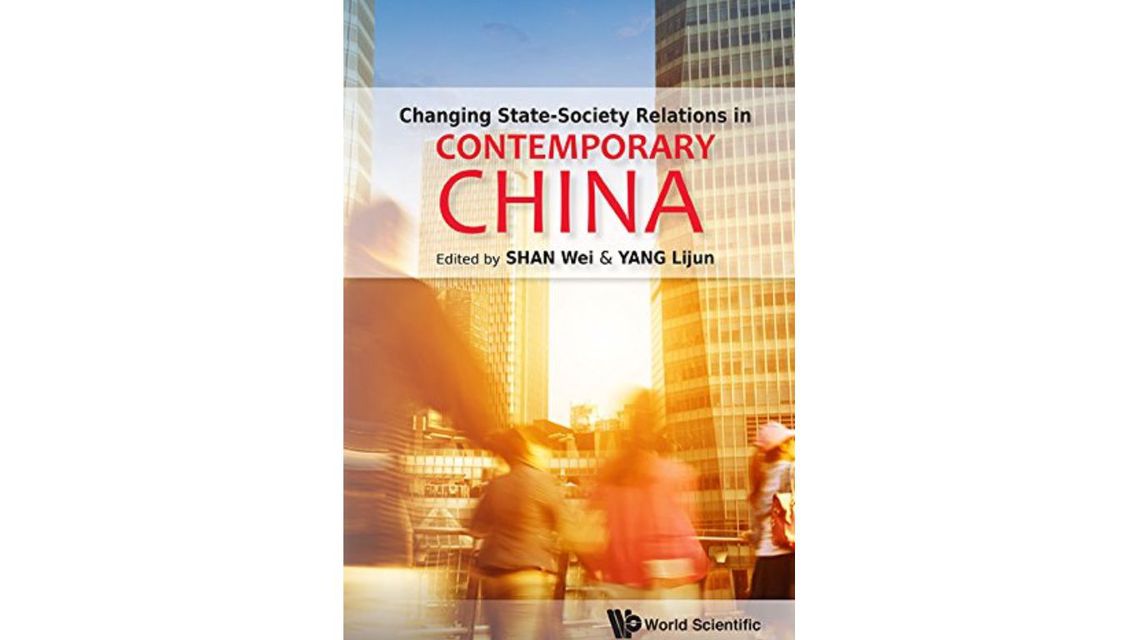
【About the book】
This book attempts to provide an overview of social and political changes in Chinese society since the global financial crisis. Rapid economic development has restructured the setup of society and empowered or weakened certain social players. The chapters in this book provide an updated account of a wide range of social changes, including the rise of the middle class and private entrepreneurs, the declining social status of the working class, as well as the resurgence of non-governmental organisations and the growing political mobilisation on the internet. The authors also examine the implications of those changes for state-society relations, governance, democratic prospects, and potentially for the stability of the current political regime.
【About Authors】
Dr. Yang Lijun is Professor of Sociology at the Institute of Public Policy of South China University of Technology (SCUT). She has studied social changes and social movements in contemporary China, particularly the Cultural Revolution and nationalism. Her research papers have appeared in academic journals such as The China Quarterly, Journal of Contemporary China, The Review of History, Asian Studies, and Chinese Affairs. Her book entitled Social Structure and the Cultural Revolution in China: Citizenship and Collective Violence was selected as one of the five best books in all social science subjects in the Asian Pacific region, and for this she received the Ohira Memorial Foundation Award in 2005. She has also edited and co-edited many volumes on contemporary China.
Professor Yang received her BA in media studies from Beijing Broadcasting College, now The Communication University of China, her MA in politics from Yokohama City University, Japan and her PhD in sociology from Hitotsubashi University, Japan. Before join SCUT, she held various research and teaching positions in the State Language Work Committee of the State Council China, Hitotsubashi University, Aochi Prefectural University, Aoyama Gakuin University, Waseda University (Japan), and National University of Singapore.
Dr. Shan Wei received his BA and MA in International Studies from Peking University and PhD in Political Science from Texas A&M University. His research focuses on the political behaviour of citizens and the elite in the context of political and economic development. Topics he has covered include Chinese citizens' political participation, changes in political culture, mass-elite relations, political leadership, and factional politics within the elite group. His research paper appears in China Quarterly and other academic journals. He is the co-editor of The State of Rural China: Peasants, Agriculture and Rural Society in the Reform Era.
【Contents】
Changing Social Classes and Social Groups:
· Return Migration in China: Trends and Impacts (Zhao Litao)
· Chinese Private Entrepreneurs: Attributes, Identity and Political Concerns (Yang Jing)
· China’s New Rich: Growth and Challenge (Zhao Litao and Sheng Sixin)
· China’s Rising Middle Class (Yang Jing)
· The Middle Class in Chinese Democratisation (Hu Xiaobo)
· Same Bed, Different Dreams: The Bifurcation of the Chinese Communist Party (Tang Wenfang)
Growing New Social Forces:
· Non-Governmental Organisations in China: Post-2008 Expansion and the New Challenges (Wong Man Lai, Sonia)
· Revolution Postponed: The Limitation of the Internet in Promoting Democracy in China (Tang Wenfang, Zhang Yang and Sheri Martin )
· Internet Development and its Influences on China’s Legal System and Legal Reforms (Liang Bin)
· Weibo and its Political and Social Impacts on China (Yang Lijun and Cao Shenshen)
Approaching the State:
· Women’s Political Participation in China (Guo Xiajuan and Yang Lijun)
· China’s Spate of Labour Protests: Tables Turned for Chinese Workers? (Yew Chiew Ping)
【Bibliographic Information】
Edited by:
Wei Shan (East Asian Institute, NUS, Singapore) and Lijun Yang (South China University of Technology, China)
https://doi.org/10.1142/10114 | September 2016
Pages: 312
Publisher : World Scientific Publishing Co
Publication date : February 28, 2017
Language : English
Print length : 200 pages
ISBN-10 : 9814618551
ISBN-13 : 978-9814618557
Item Weight : 1.3 pounds
Dimensions : 6 x 0.75 x 9 inches





